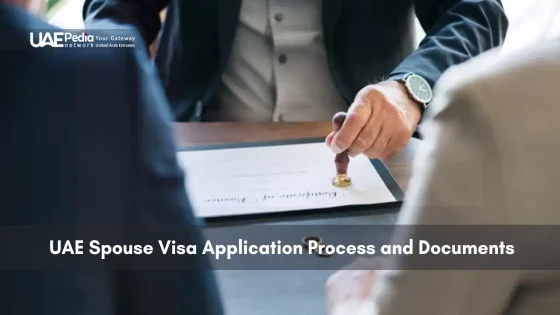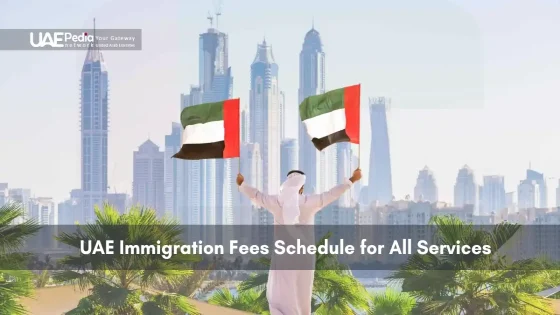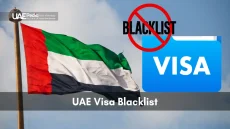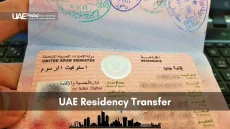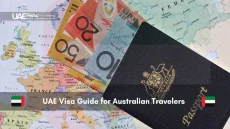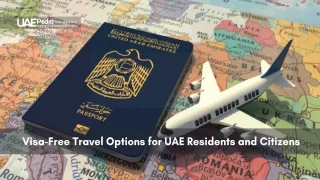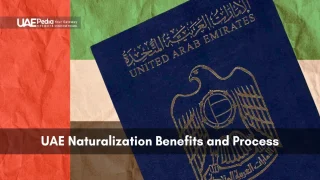Is navigating the spouse visa process more straightforward than most expats assume? With streamlined digital systems and clear guidelines, securing legal residency for your partner doesn’t have to feel like deciphering a desert mirage. Let’s unpack how this process works—and why getting it right matters.
Whether you’re newly married or planning a relocation, understanding the blend of online portals and in-person steps is crucial. Recent updates have simplified requirements, but attention to detail remains key—think passport copies, medical checks, and attested marriage certificates. Missing one document could mean delays, so precision matters.
The Emirates’ residence visa system offers stability for families, allowing spouses to work, study, or simply enjoy sun-soaked adventures together. We’ll walk through each phase, from initial applications to final approvals, highlighting insider tips to avoid common hiccups.
- Step-by-step guide combining digital and physical requirements
- Essential documents checklist tailored to 2024 regulations
- Pro tips for navigating medical tests and government portals
- Recent changes impacting processing times and eligibility
Navigating the UAE spouse visa Application Process
Starting the residency journey for loved ones feels like plotting a desert road trip—you need clear directions, reliable supplies, and checkpoints. The process unfolds in two phases: digital groundwork followed by hands-on verification. Let’s map this adventure.
Application Journey: From Entry Permit to Residency
First comes the entry permit—your golden ticket. Submit basic details through government portals, then validate everything in person. Think of it like booking desert safari tickets online but confirming your spot at the departure gate.
Next, medical checks and Emirates ID registration complete the puzzle. One expat shared: “Attesting our marriage certificate took longer than expected—start early!” Pro tip: Keep tenancy contracts handy to prove accommodation stability.
Why Sponsorship Makes Sense
Sponsoring family members isn’t just paperwork—it’s building stability. Benefits include:
- Legal residency rights for dependents
- Access to healthcare and education
- Freedom to work or study without restrictions
Clear income requirements (AED 4,000+ monthly) and documented housing remove guesswork. As regulations evolve, transparency in the sponsor’s role—like providing employment contracts—keeps stress levels low.
Remember, this journey mirrors Emirati hospitality: structured yet welcoming when you follow the trail markers.
Eligibility and Essential Requirements
Unlocking residency for loved ones hinges on two non-negotiables: proving financial stability and securing approved housing. Let’s break down these pillars—financial stability and a proper home base—so you can build your application on solid ground.
Income and Occupation Criteria
Your paycheck tells the story here. Sponsors must show a minimum salary of AED 4,000 monthly—or AED 3,000 if housing is provided. One Dubai-based engineer shared: “Submitting six months’ bank statements felt tedious, but it smoothed the approval process.”
Stable employment matters just as much as the numbers. A valid work contract stamped by the Ministry of Human Resources shows you’re rooted in your role. Freelancers? Recent rule changes allow sponsorship if you meet income benchmarks through consistent project invoices.
Accommodation and Tenancy Standards
Your home must pass the ‘Goldilocks test’—not too crowded, properly registered. Shared apartments often face scrutiny, so aim for a tenancy contract matching your family’s size. Pro tip: Double-check that your lease specifies “residential use only” to avoid hiccups.
Hotels or short-term rentals won’t cut it. Authorities want proof of long-term stability—think one-year leases with Ejari registration. As one Abu Dhabi resident noted: “Getting our contract attested took two days, but it was worth the wait.”
Nail these requirements, and you’re not just checking boxes—you’re crafting a safety net for your family’s future. Cross-reference your documents against the latest guidelines, and you’ll be sipping karak chai in your new home sooner than you think.
Document Checklist for Your UAE Residence Visa
Imagine your paperwork as puzzle pieces—each one needs to fit perfectly. Gathering the right documents feels like prepping for a desert sunrise hike: pack smart, and you’ll reach the summit smoothly. Here’s your map to avoid getting lost in translation.
Identification Essentials
Start with passports—original and notarized copies for all applicants. One expat chuckled: “I photocopied mine so much, the pages looked like antique parchment!” Ensure validity extends six months beyond your planned stay.
Love Paperwork: Marriage Proof
Your union needs official validation. Submit a marriage certificate attested by both home country authorities and local embassies. For those navigating the family sponsorship process, double-check stamps—missing one could mean redoing the entire journey.
Money Talks: Financial Proof
Stability shines through:
- Salary certificates showing AED 4,000+ monthly income
- Employment contracts with company letterhead
- Ejari-registered tenancy agreements
- Utility bills dated within 60 days
Pro tip: Arabic translations require certified professionals—Google Translate won’t cut it here. As one Abu Dhabi resident learned: “My coffee-stained electricity bill got rejected—always submit crisp copies!”
Treat this checklist like a golden ticket. Triple-check dates, signatures, and stamps. One missing piece? That’s your cue to brew another karak and review everything again.
Step-by-Step Application Process
Charting your residency journey is like following a trusted recipe—measure twice, mix once, and savor the results. The blend of digital convenience and in-person verification keeps things efficient but demands precision. Let’s break down each ingredient for success.
Online and In-Person Application Procedures
Start by gathering your documents—passports, attested marriage certificates, and salary proofs. One Abu Dhabi resident joked: “I organized my papers like a wedding planner arranging seating charts!” Next, secure the entry permit through government portals or authorized typing centers. This digital “invitation” unlocks the next phase.
Choose your submission method: online portals for tech-savvy applicants or Amer centers for hands-on guidance. A Dubai teacher shared: “The typing center staff spotted a typo in my application—lifesavers!” Once submitted, expect medical tests and Emirates ID registration within 5-10 working days.
Pro tip: Set calendar reminders for each milestone. Delays often come from expired documents or unattested papers. For those navigating the family sponsorship process, triple-check stamps on marriage certificates—it’s easier than redoing the entire journey.
Finally, review every field in the application portal. A misplaced birthdate or passport number could mean restarting the clock. Authorities might request additional verification—respond promptly to keep things moving. Sip that karak chai while you wait, but keep your inbox open!
Meeting Income, Accommodation, and Employment Criteria
Think of residency sponsorship like a three-legged stool—remove one leg, and the whole structure wobbles. Your salary, housing, and job stability form the foundation authorities scrutinize. Let’s decode what makes each element non-negotiable.
Salary Certificate and Work Contract Guidelines
Your paycheck isn’t just numbers—it’s proof you can support loved ones. Sponsors must present a salary certificate stamped by their employer, showing monthly earnings of AED 4,000 (or AED 3,000 if housing is provided). One Dubai teacher advised: “Get this document in Arabic—English versions often require extra attestation.”
Work contracts need more than signatures. Ensure yours includes:
- Company letterhead and Ministry of Human Resources stamp
- Clear start/end dates and position details
- Salary breakdown matching your bank statements
Freelancers and entrepreneurs aren’t excluded. Recent updates allow sponsorship if you demonstrate consistent income through invoices or client contracts. Just ensure your paperwork tells a clear financial story.
Housing proofs complete the picture. An Ejari-registered tenancy agreement shows you’ve secured adequate space. Avoid shared accommodations unless explicitly permitted. As one Abu Dhabi resident learned: “Our application stalled because the lease didn’t specify ‘family residence’—always double-check wording!”
Pro tip: Documents expire. Mark renewal dates for salary certificates and contracts on your calendar. For those sponsoring family members, maintaining current paperwork is like keeping your car fueled—skip it, and you’ll stall halfway through the journey.
Medical Fitness, Work Permits, and Legal Considerations
Crossing the finish line in your residency journey means clearing two final hurdles: health checks and legal boxes. These steps aren’t just formalities—they’re your ticket to building a life together. Let’s demystify what’s required beyond the paperwork shuffle.
Understanding Medical Tests and Work Permit Requirements
Every applicant over 18 faces a medical fitness test at approved centers. Expect blood screenings for infectious diseases and chest X-rays for tuberculosis. One expat laughed: “The nurse joked my caffeine levels were higher than Dubai’s Burj Khalifa—but results came clean!” Tests take 48 hours, but plan buffer time for retests if needed.
| Test Type | Purpose | Validity Period |
|---|---|---|
| Blood Screening | Detect HIV/Hepatitis | 3 months |
| Chest X-ray | Check for Tuberculosis | 3 months |
| Medical Certificate | Confirm Overall Health | 6 months |
For employment seekers, the Ministry of Human Resources (MoHRE) handles work permits. Sponsors must submit their employment contract and the applicant’s attested qualifications. Pro tip: Start this process after receiving your residency stamp—jumping the gun causes delays.
Common pitfalls? Missing attestations on marriage certificates or expired test results. One Abu Dhabi resident warned: “We forgot to translate our child’s birth certificate—cost us two weeks!” Double-check document expiry dates and agency seals to keep your timeline intact.
Clear these steps, and you’re not just complying—you’re crafting peace of mind. Now, who’s ready for that post-approval celebration brunch?
Breakdown of Fees, Costs, and Timelines
Budgeting for your residency journey feels like planning a desert excursion—pack light but prepare for every dirham. Costs vary across emirates, with Dubai often charging 15-20% more than northern regions. Let’s map your financial route.
Upfront Costs and Hidden Fees
| Expense | Dubai | Abu Dhabi | Validity |
|---|---|---|---|
| Entry Permit | AED 1,100 | AED 850 | 60 days |
| Medical Test | AED 350 | AED 320 | 3 months |
| Emirates ID | AED 370 | AED 370 | 1-3 years |
| Visa Stamping | AED 800 | AED 600 | Same as ID |
One Sharjah resident noted: “We saved AED 300 by applying during a government fee holiday—always check for promotions!” Three-year permits offer better value, costing 40% less annually than single-year options.
Timelines and Renewal Realities
Standard processing takes 10-15 working days, but delays hit when:
- Medical results need retesting
- Tenancy contracts lack Ejari registration
- Bank statements show irregular deposits
Renewals require the same documents as initial applications. Miss your deadline? Late fees start at AED 25/day—ouch! For a detailed cost breakdown, bookmark our updated guides.
Pro tip: Budget AED 3,000-4,500 total for first-time applications. Treat this like desert navigation—know your oasis stops (fee payments) and sandstorm risks (expired certificates).
Tips for Avoiding Common Application Pitfalls
Avoiding residency application mistakes is like using GPS in a sandstorm—stay alert, follow the signals, and you’ll reach your destination. Even small errors can turn a smooth journey into a paperwork detour. Let’s explore how to sidestep the most frequent missteps.
Paperwork Precision Saves Headaches
Missing stamps or expired documents top the rejection list. One expat shared: “I thought my marriage certificate was valid—turns out it needed an extra embassy stamp!” Always verify attestation requirements with your home country’s consulate first.
Trusted typing centers become your allies. Their staff spot errors like mismatched passport numbers or unsigned forms. As one Dubai resident advised: “Pay the extra AED 50 for their review service—it’s cheaper than reapplying!”
Stay ahead of deadlines with these tactics:
- Set phone reminders for medical test expirations
- Renew passports six months before expiry
- Bookmark government portals to track progress
Pro tip: Print two sets of documents required. Keep one folder for submissions, another for reference. Need copies? Use color scans—black-and-white versions sometimes get rejected.
Communication matters. If authorities request additional proof, respond within 48 hours. Delays reset your place in the queue. Remember: careful planning today means fewer karak-chai-fueled late nights tomorrow.
Final Insights and Next Steps for UAE Spouse Visa Applicants
Securing your family’s future in the Emirates is like planting a date palm—patience and care yield sweet rewards. With attested marriage certificates, updated passports, and salary proofs in hand, you’ve laid the groundwork. Remember: medical tests and entry permits expire faster than desert shade—mark those renewal dates!
For families with children, double-check birth certificate attestations. One parent shared: “We nearly missed our appointment because our toddler’s paperwork lacked an Arabic translation!” Sponsors should confirm their contract meets income thresholds (AED 4,000+) and housing meets space requirements.
Residency typically lasts 1-3 years—set reminders 30 days before expiration. Renewals demand fresh medical checks and current documents. Pro tip: Keep digital copies of everything in cloud storage—you’ll thank yourself during sudden requests.
Ready to begin? Gather your family member’s papers like precious souvenirs—each one tells your story. Explore our guides on schooling options or cultural adaptation next. However your journey unfolds, we’re here with maps, checklists, and virtual high-fives. Your Arabian chapter starts now—let’s make it unforgettable.
You’ll need a monthly income of at least AED 4,000 (or AED 3,000 with employer-provided housing). Freelancers and investors must show proof of consistent earnings through bank statements or trade licenses.
No—you’ll need a registered tenancy contract in your name. Ejari-certified housing is mandatory to prove you meet Dubai’s accommodation standards for family sponsorship.
Typically 7–10 working days. Documents issued outside the Emirates require authentication from your home country’s foreign affairs office, the UAE embassy, and the Ministry of Foreign Affairs here.
Yes. Your spouse must complete a tuberculosis screening and HIV test at approved government health centers. Pregnancy doesn’t affect eligibility, but full disclosure is crucial.
Shared contracts won’t work. Update your Ejari to list you as the primary tenant or get a landlord letter confirming exclusive family occupancy—typed in Arabic and English.
Entry permits usually process in 2–5 days. Once issued, your partner has 60 days to enter the Emirates and convert the permit into a residence visa within 30 days of arrival.
Only full-time employees with a valid labor contract qualify. Part-time roles or remote work visas from free zones often don’t meet the Ministry of Human Resources’ criteria.
Use the ICA Smart Service portal for digital uploads—typed forms, attested papers, and passport scans. In-person submissions at Amer Centers take 1–2 extra days for typing errors.
Yes. Junior dependents’ residency aligns with the sponsor’s visa duration. Renewals require updated salary certificates, tenancy contracts, and medical checks for kids over 18.
Top reasons include expired passports, unreadable document scans, or salary deposits below the threshold. Double-check Emirates ID validity and spouse’s entry stamp dates before applying.
